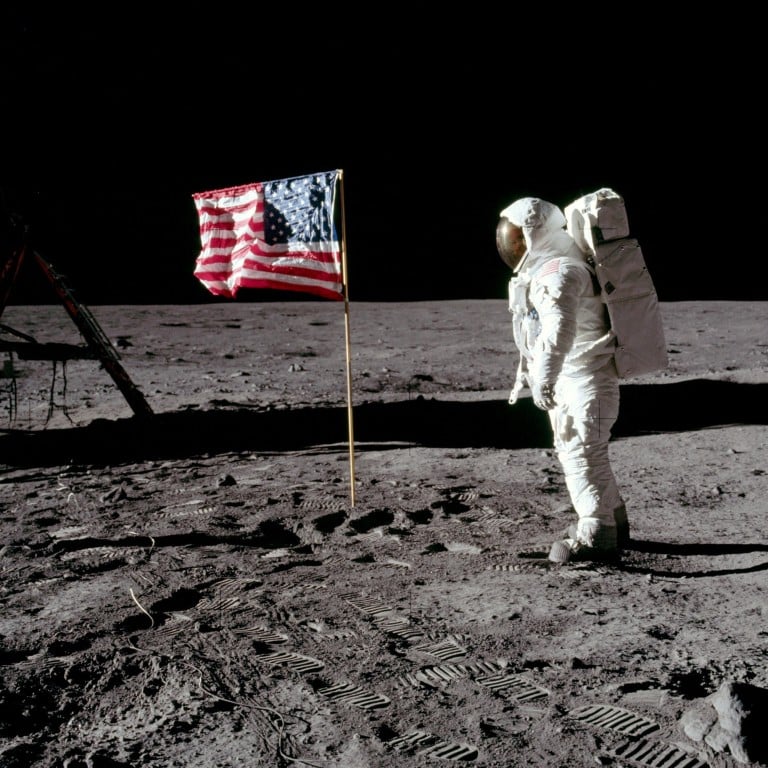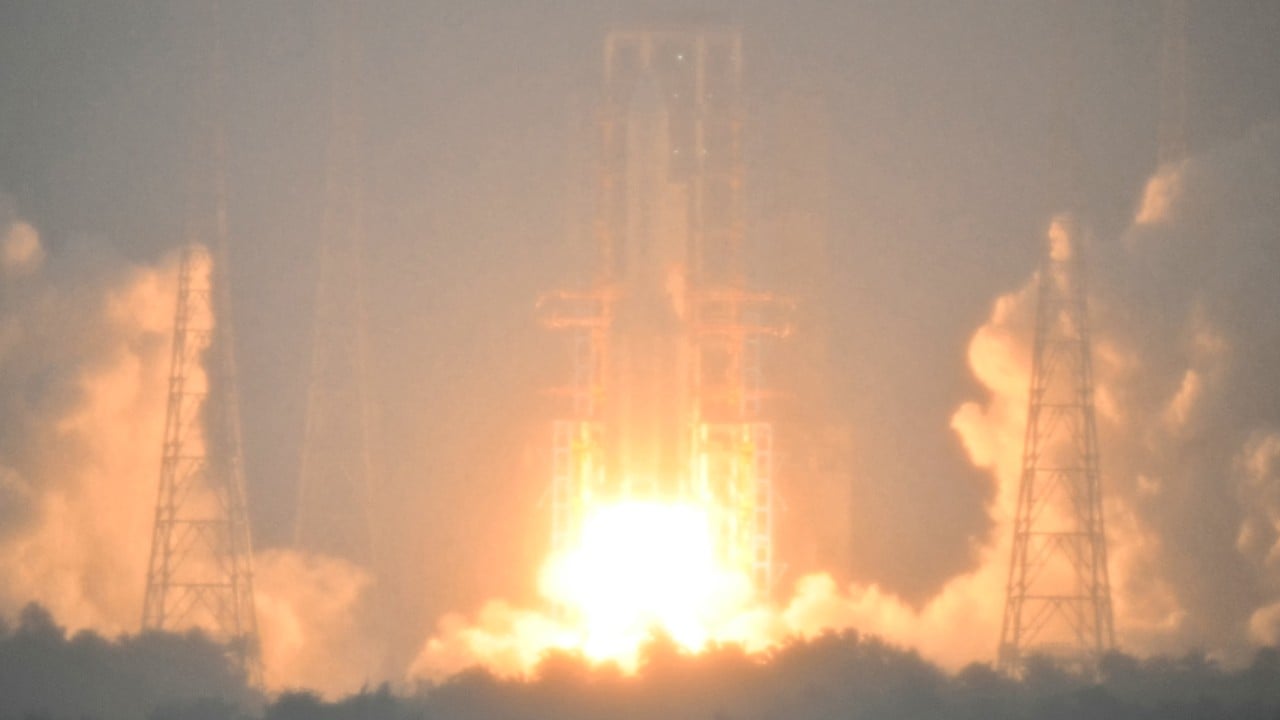
How a few muddled words during China’s Chang’e-6 launch set off a flurry of faked moon landing rumours
- Mission scientist Pei Zhaoyu struggles to form a sentence during a live broadcast, sending patriotic doubters of the 1969 moonwalk into overdrive
- Leading research organisations step in to call for reason
Some of China’s top research bodies have sought to quash an online flurry of conspiracy theories that the US’ 1969 moon landing was faked – suggestions based on a lunar scientist’s garbled sentence in a live interview with state television.
“We didn’t find that … that from the Apollo basin…,” Pei said.
Noticing that Pei was having trouble organising his thoughts, the host of the broadcast quickly moved the conversation on to another topic.
But many online users linked the basin’s name to Nasa’s Apollo mission over 50 years ago on the near side of the moon, and thought Pei was trying to say that no remains of the mission were found.
Soon short videos tagged with key terms such as “didn’t find” and “Apollo” and highlighting Pei’s broken sentence were rife, with many users saying that this proved the Americans never walked on the moon.
The China Association for Science and Technology then weighed in to scotch the suggestions, saying the groundless comments were made amid a wave of nationalism and patriotism, but proof of the 1969 moonwalk was in the samples, photos and videos of the mission.
“Most people question the Apollo moon landing out of their simple feelings for the country, but we still would like to call on everyone to remain rational and think independently and seek truth from facts,” the association said.
The Chinese Academy of Sciences’ Institute of Geology and Geophysics also took to social media to dispel the rumours, reposting a Tencent News interview with a space scientist who said the speculation was an “overinterpretation” of Pei’s comment and online users should think based on “solid evidence”.
“The Apollo mission and Apollo basin have no other connection except the same name. It’s clear that Pei did not say in the broadcast that the mission was faked,” the article said.
The reposted article detailed evidence of the Apollo 11 moonwalk and said that anyone who claimed it was faked would have to provide “multiple pieces of solid evidence” to support the suggestion.
About 14 per cent of the Chinese population was defined as scientifically literate in 2023, compared with just 3 per cent in 2010, according to a national survey by the association. The average in advanced economies is usually above 20 per cent.


